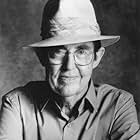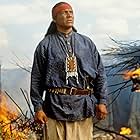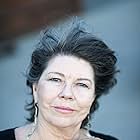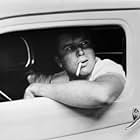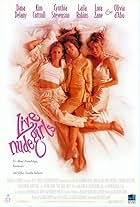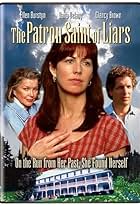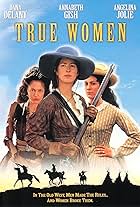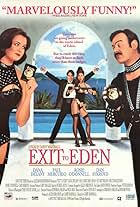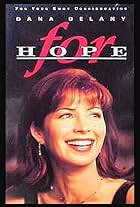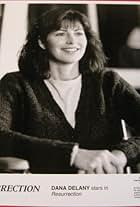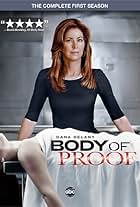Brothers P. D. (Danny Nucci) and A. J. (Del Zamora), in an effort to keep possession of their family property, a languishing New Mexico ranch, undertake a series of somewhat quixotic projects to raise money in this delightful film that has vanished into the memory hole, due primarily to its extremely localized (southern New Mexico) flavour and dialects, notwithstanding its enthusiastic reception at Sundance. Director/scriptor Reverge Anselmo's initial effort displays an awareness of the significant and unique Southwestern U. S. quality of light, an essential element within the film's mise-en-scene, and effective editing helps in sharply contrasting daylight and night scenes, serving also to heighten new and rediscovered romantic liaisons. Each role is written to foster its further development and the four leads accept the challenge as Nucci, who has a substantial acting range, and Zamora turn in their most interesting performances, while Dana Delaney and Sarah Lassez are also resourceful, with supporting players Ed Bruce and Steve Reevis leaving lasting impressions, all abetted by a leisurely rhythm established by the director, in addition to his talent at polishing details and the decision to eschew undue cutting. A distinctly experience based script, and the actors' obvious enjoyment of it along with their ability to ad lib accent the proceedings that are generally light-hearted, while yet offering sufficient emotional substance to spawn interest in unusual amorous pairings, and include a strong feeling of brotherly kinship, to boot. An occasional lapse into slapstick mars the production's warmly comedic tone, but that is its sole shortcoming, and a combination of uncommon incident and thoroughgoing character point of view energize a plot that, albeit episodic, never lacks for continuity in a piece that, although specific to a rural setting, offers more hulled insights than can normally be found in the ubiquitous treatments of decaying cities and their mean streets. Remarkably gifted Anselmo had never seen a motion picture camera, spoken with an actor, or in fact read about filmmaking in any of its technical aspects before undertaking to produce and direct this work. His scenario is essentially drawn from his own experiences, is lucidly written, and is filmed squarely where the action is occurring, with an originality seldom seen in American cinema.





